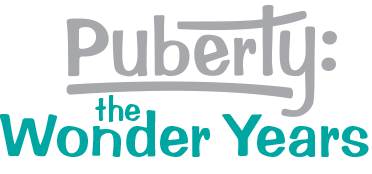Controversy can be defined as a prolonged public dispute, debate, or contention. It includes a disagreement in which people express strong opposing views. Controversy can negatively impact a school community. So, how can we avoid controversy around inclusive puberty education?
In every controversy, two or more viewpoints are involved. When people think about controversy related to puberty education, the viewpoint of those who oppose sex education is typically the loudest voice in the room. However, the viewpoint of those who want more inclusive puberty education also needs to be considered. Many parents want instruction taught that includes all students, not only those who belong to the majority group.
Two Types of Controversy
Myths, Misinformation, or Misaligned Values
Most parents who express concerns about sex education will be willing to sit down with an educator to look over the curriculum and materials. After doing so, some will be supportive of the puberty education program and allow their child to participate. Others will still want to excuse their children from some or all the lessons.
Reasons Some Parents Object
- “It’s the parent’s job to teach this, not the school’s.”
- “I don’t want you teaching my child about (fill in the topic).”
- “My child isn’t ready for this yet.”
- “It’s against my religion.”
Possible Responses
- Identify the parent’s concerns.
- Validate the concerns expressed.
- Identify common values.
- Share information about typical childhood sexual development and how the curriculum is developmentally appropriate.
- Offer to partner with the parent. Provide resources for parents to teach about puberty at home.
- Clarify the policy for excluding a student from puberty education lessons.
Disinformation Campaigns
A small number of parents are not looking for information or compromise to meet their children’s needs. These parents will not be satisfied until they dismantle the puberty education program for the whole school. In this type of controversy, the goals for avoiding controversy include:
- Contain the damage by minimizing the disinformation campaign.
- Focus on the “moveable middle,” the parents who are hearing rumors and will respond to accurate information.
- Follow your policies and procedures for conducting public meetings, facilitating curriculum previews, and offering opt-outs.
Four Keys to Avoid Controversy
All school boards, administrators, and teachers want to avoid controversy, right? When it comes to teaching inclusive puberty education, these factors are key to avoiding trouble:
- Transparency: Show your school families what will be taught and invite discussion.
- Options: Allow parents/caregivers the right to opt their child out of lessons that don’t feel right for them.
- Professional development: Provide training to educators to ensure consistency in delivery, increase competency, and clarify expectations and boundaries.
- Curriculum adoption: When all teachers implement the same lessons, it avoids confusion.
How We Avoid Controversy
Puberty: The Wonder Years helps you with all four keys to avoid controversy.
Parent preview options are available for schools to demonstrate transparency. Family Engagement is a major feature of the curriculum, demonstrating partnership between home and school. The curriculum provides a sample opt-out letter that can be personalized and used to explain your school’s policy for excusing students from puberty education lessons.
Professional development is available to ensure that your educators are prepared to implement puberty education in a consistent manner across your school district. The lesson plans are carefully scripted, so educators know what to say and how to talk about puberty in an inclusive, age-appropriate manner.
Finally, Puberty: The Wonder Years is being used across the U.S. Find out why your neighboring school districts have chosen Puberty: The Wonder Years to equip their students for a positive puberty experience.
Of course, if you hear suggestions that you think will improve the way Puberty: The Wonder Years is taught, please send us your feedback! We love to hear from educators and parents with ideas for doing better.
Position Statements and Policies in Support of Sexual Health Education in Schools:
- American Academy of Pediatrics (AAP)
- National Association of School Nurses (NASN)
- National Association of School Psychologists (NASP)
- American School Counselor Association (ASCA)
- SHAPE America
- American College of Obstetricians and Gynecologists (ACOG)
- International Federation of Gynecology and Obstetrics (FIGO)
- North American Society for Pediatric and Adolescent Gynecology (NASPAG)
- American Sexual Health Association (ASHA)
- American Public Health Association (APHA)
- American Association on Intellectual and Developmental Disabilities (AAIDD)
- SIECUS: Sex Ed for Social Change
- American Association of Sexuality Educators, Counselors, and Therapists (AASECT)
- National Conference of State Legislatures (NCSL)
- National Association of County & City Health Officials (NACCHO)
- World Health Organization (WHO)
- European Network of Ombudspersons for Children (ENOC)

